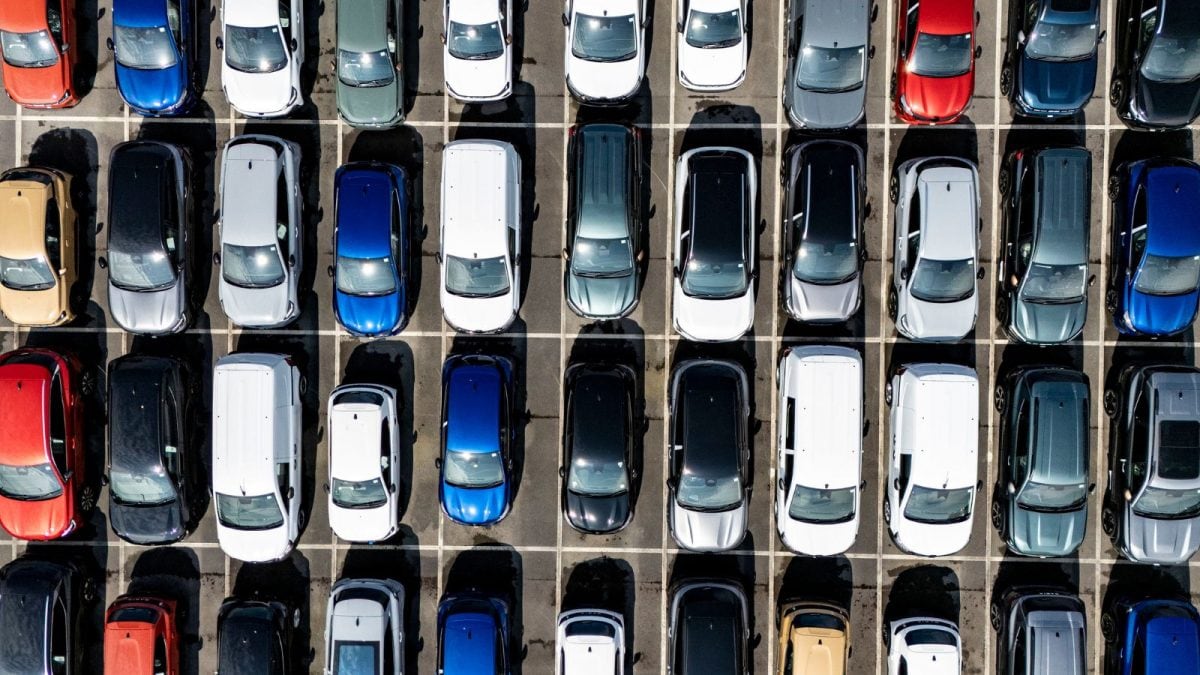- July 24, 2025
Duty Cuts On Large Petrol, Diesel Vehicles, High-Priced EVs Under FTA: All You Need To Know

Last Updated:
The Comprehensive Economic and Trade Agreement aims to protect sensitive segments of the domestic automotive industry especially of mid and small cars and low-priced EVs
New cars are parked at Royal Portbury Docks, North Somerset, England. (Image for representation: AP)
India has provided duty concessions to the UK auto exporters only on large petrol and diesel vehicles as well as high-priced EVs under the free trade agreement signed between the two countries on Thursday.
Officially called the Comprehensive Economic and Trade Agreement (CETA), the trade pact aims to protects sensitive segments of the domestic automotive industry especially mid and small cars and low-priced EVs, officials said.
According to officials, there are no concessions on electric, hybrid, and hydrogen-powered vehicles in the first five years of the CETA, which was signed earlier in the presence of Prime Minister Narendra Modi and his British counterpart Keir Starmer.
Here’s all you need to know:
- As per the CETA, tariffs on automotive imports will go from about 110 percent at present to 10 percent under quotas on both sides.
- The offered quota and duty reduction are more for the large engine capacity categories (above 3,000 cc petrol/2,500 cc diesel).
- A government official said this will ensure that the domestic sector has sufficient time to expand, innovate, and enhance global competitiveness in small (up to 1,500 cc) and mid segment (1,500-3,000 cc petrol/up to 2,500 cc diesel).
- The duty reduction to 10 percent will be done in over five years with quota. Out of quota duty reduction is 50 percent over 10 years.
- As per the details of the trade pact, the number of vehicles from ICE (internal combustion engine) engines will be deducted by the number of EV vehicles getting concessions from the sixth year to maintain the total quota volume of 37,000 units at the end of 15 years of duty concession.
- For vehicles priced below British Pound 40,000 (CIF), no market access is provided, ensuring complete protection for the mass-market EV segment in which India seeks global leadership. Market access in EV is given mostly in high-priced vehicles priced above British Pound 80,000 (CIF).
- For large-engine petrol cars above 3000 cc and diesel cars over 2500 cc – traditionally luxury imports – India has committed to lowering the current over 100 percent customs duty to 10 percent over 15 years, within a quota starting at 10,000 units and rising to 19,000 in year five.
- For mid-sized cars (1500-2500 cc diesel/up to 3000 cc petrol), a 50 percent in-quota duty applies initially, falling to 10 percent by year five. Small cars under 1500 cc follow a similar tariff reduction path with a growing quota.
- Up to 37,000 UK-built ICE vehicles could enter India annually at just 10 percent duty – far below the current base rate of 110 percent.
- Experts said this will create a preferential entry path for high-end British brands such as Jaguar and Land Rover, both owned by Tata Motors, but also for other UK-based exports.
“India has secured market access to the tune of four times of its concession given to the UK on EV in the UK market,” the official said, adding India has extended a structured and balanced market access offer to the UK in the automobile sector under the trade agreement.
Think tank GTRI said this is India’s first-ever auto tariff concession in any FTA, and is likely to trigger similar demands from Japan, European Union, South Korea, and the US. Founder Ajay Srivastava told PTI that India has opened a dedicated Tariff Rate Quota (TRQ) for passenger cars from the UK.
“In-quota vehicles enjoy sharply reduced duties, while out-of-quota imports still face tariffs ranging from 95 percent to 50 percent, depending on vehicle size and year,” Srivastava said, adding “the TRQ marks a major policy shift, especially as India has long used high tariffs to protect its domestic automotive industry.”
The News Desk is a team of passionate editors and writers who break and analyse the most important events unfolding in India and abroad. From live updates to exclusive reports to in-depth explainers, the Desk d…Read More
The News Desk is a team of passionate editors and writers who break and analyse the most important events unfolding in India and abroad. From live updates to exclusive reports to in-depth explainers, the Desk d… Read More
view comments
- First Published:





